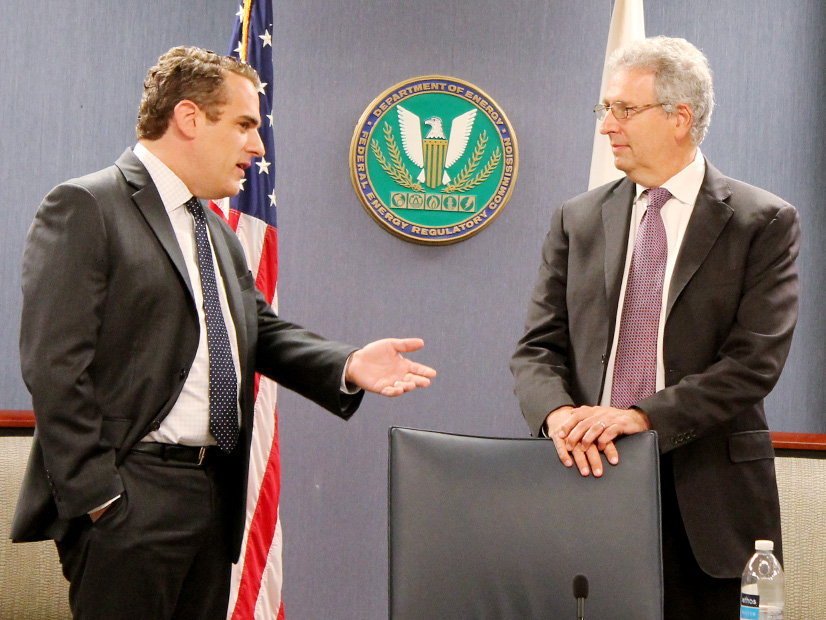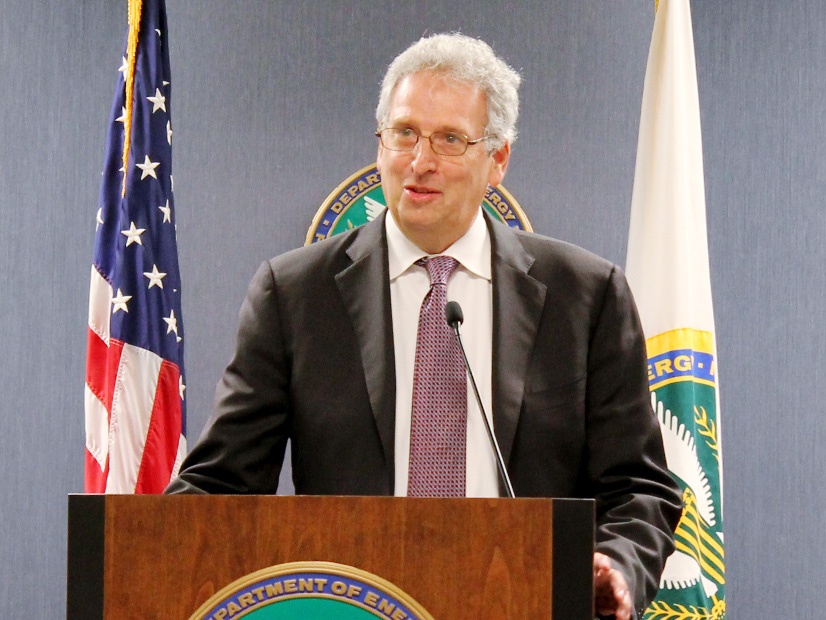WASHINGTON — FERC Chairman Richard Glick (D) on Thursday categorically denied taking directives or feedback from Biden administration officials on commission actions.
The remarks to reporters after the commission’s monthly open meeting came in response to questions about records of Glick’s meetings released under the Freedom of Information Act. They showed that Glick had met 13 times with Deputy National Climate Adviser Ali Zaidi between September of last year and the end of March and nine times with Energy Secretary Jennifer Granholm between last July and the end of March.
The Wall Street Journal’s Editorial Board published an op-ed Sunday suggesting that the meetings indicate Glick had lied before the Senate Energy and Natural Resources Committee when he denied slow-walking natural gas pipeline approvals because of administration orders. (See Glick: No Regrets over Gas Policy Statements.)
“It’s impossible to know what Messrs. Glick and Zaidi were discussing,” the board wrote. “But it’s hard to believe the two never talked about pipelines.”
Glick called the Journal’s piece “complete bull,” joking that he wanted to quote former Attorney General Bill Barr, whom he said was “more colorful.” He was alluding to Barr’s statement in a deposition that former President Donald Trump’s claims of election fraud were “bullshit.”
“I take FERC’s independence very seriously,” he told reporters. “I would never allow [anyone in the administration] to tell me what to do, and the good news is that in this particular administration, they don’t do that.”
 FERC Commissioner James Danly (left) and Chairman Richard Glick chat before the commission’s meeting begins. | © RTO Insider LLC
FERC Commissioner James Danly (left) and Chairman Richard Glick chat before the commission’s meeting begins. | © RTO Insider LLC
Glick was likely alluding to the Trump administration’s proposed Grid Resiliency Pricing Rule, which FERC unanimously rejected in 2018. (See FERC Rejects DOE Rule, Opens RTO ‘Resilience’ Inquiry.) He also said that in his first meeting with Granholm, she pledged that the Department of Energy would “never tell [us] what to do. And she’s lived up to that, and I really respect that.”
He also said he “would never, ever talk about anything we can’t talk about, meaning ex parte.”
Under the commission’s ex parte rules, FERC commissioners and staff can only discuss issues pending before them among themselves; they cannot even consider opinions about those issues unless they are officially filed with the commission as comments.
Instead, Glick said, the meetings were for him to brief the administration about what was going on: “‘What’s the status of grid reliability? Where do we think the grid is headed? Is there enough fuel in New England for the winter? What’s happening in Texas during [last year’s] winter storm? Was there market manipulation?’ … It’s never, ‘you need to do this,’ or ‘you should do this,’ or ‘this is our policy.’ That just doesn’t happen.”
Glick was also asked whether he received feedback from Zaidi or Granholm about two controversial policy statements the commission issued earlier this year that were later converted to drafts, with the majority citing feedback from stakeholders who said the policies were confusing. (See FERC Backtracks on Gas Policy Updates.)
The policies were not even discussed, Glick said. “No one provided any feedback whatsoever.”
The FOIA request was submitted by the Institute for Energy Research, which describes itself as a nonprofit that “conducts intensive research and analysis on the functions, operations and government regulation of global energy markets.” It advocates for free-market energy policy and fossil fuel use.




